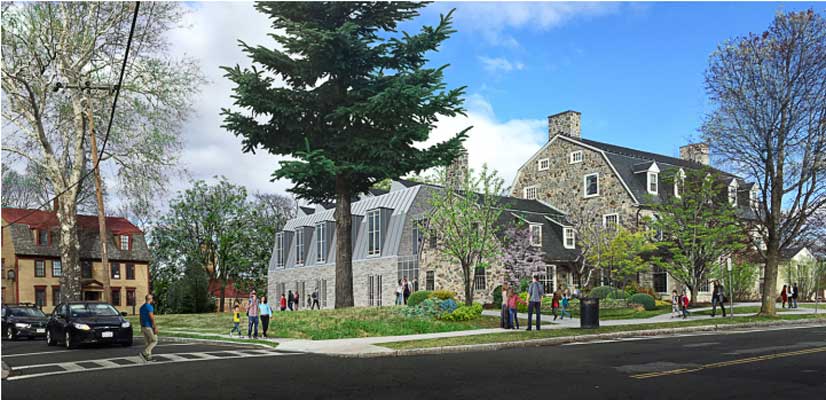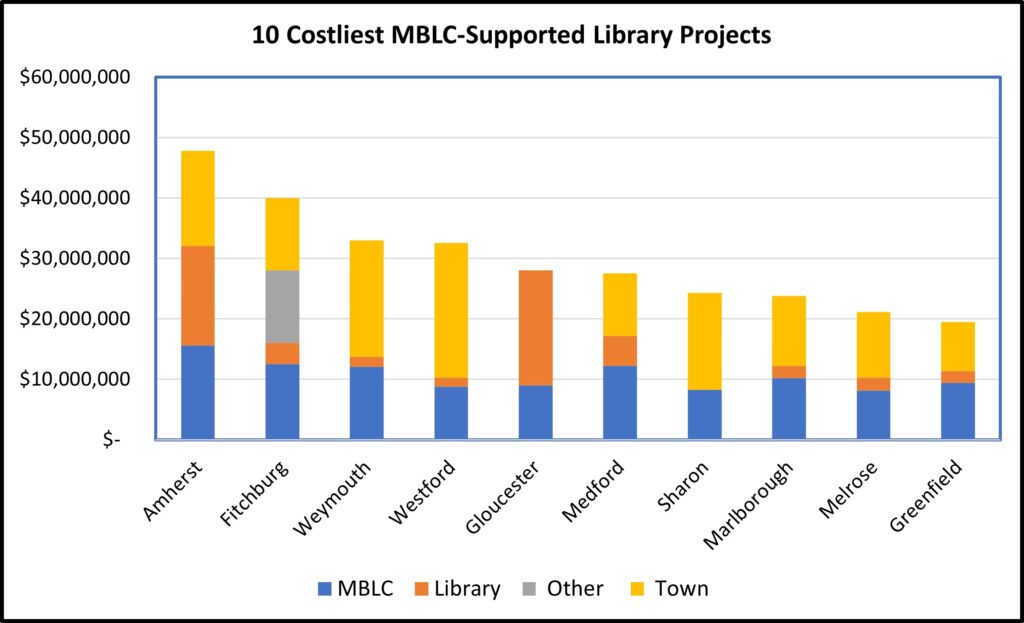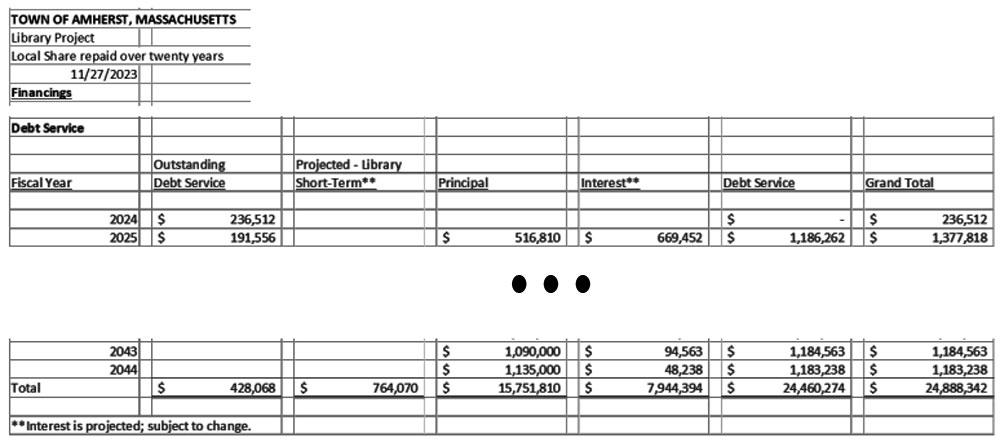Council Approves Costliest Library Project in Massachusetts

Photo: https://www.joneslibrary.org/
Amherst Commits $25 Million in Taxpayer Funds to Jones Library Expansion
At its December 18 meeting the Amherst Town Council approved borrowing an additional $9.8 million to cover a funding gap for the Jones Library renovation-expansion, now estimated to cost $46.1 million.
See related Plenty of Misgivings, But No Votes Against Additional Jones Library Borrowing
The building project will demolish a 30-year-old wing and add 15,000 sq. ft. to create the 10th largest public library in Massachusetts, and produce the costliest library project in Massachusetts (see bar graph below) over the coming years. Subtracting Amherst’s 23,000 students who have academic libraries of their own leaves Amherst with 17,000 year-round residents, ranking it 119th among Massachusetts cities and towns by population.
The scope of the project was established beginning in 2014 by The Jones Library, Inc. Feasibility Committee, led by Board of Trustees President Austin Sarat, Library Director Sharon Sharry and Capital Campaign Co-chair Kent Faerber. With the encouragement of the Massachusetts Board of Library Commissioners (MBLC), the group applied for and received a $13.8 million grant which would pay for up to 40% of eligible costs. In April 2021 the Town Council authorized borrowing up to $36.3 million for the project and capped the commitment of taxpayer funds at $15.8 million, with the Library Capital Campaign making up any difference. The Council also awarded $1 million in Community Preservation Act (CPA) funds, which are also supported by Amherst property tax, to the project.

After fighting a voter veto petition and facing litigation over signature certification irregularities, town officials ultimately conceded to holding a town-wide referendum on the funding. Heavy lobbying by the trustees, capital campaign, Friends of the Jones Library, Amherst Forward (a PAC with four capital campaign fundraisers on its leadership team) and the town-subsidized Jones Library Newsletter ensued.
On November 2, 2021 Amherst voters were asked to vote on a ballot question that spelled out the Library commitment of $5.7 million, the $13.8 million MBLC grant, the $1 million in CPA funding, and a town share of project costs described as $15.8 million, without acknowledging full debt service costs. A recent estimate of the full cost of the library project to the town is $24,888,342.
The referendum on borrowing passed 3231-1709, with 31% of registered voters participating. Library project advocates have persisted in describing the outcome as “an overwhelming majority” of voters supporting the debt, when in fact the 64% of voters who cast “Yes” votes fell short of the Massachusetts two-thirds supermajority required for municipal borrowing.
In the two years since, rising costs have inflated the project budget by $9.8 million, while several million dollars worth of design features have been eliminated to save money. Despite the writing on the wall, officials have made no serious effort to develop an alternate “Plan B” for addressing library repairs that have accumulated for ten years while leaders deferred annual maintenance.
See related Letter: The Jones Library Has A Plan B. Now What?

Today the total library project cost, including interest payments, is projected to be $55.3 million with the town share paid from taxpayer funds totaling nearly $25 million. The professional fundraisers working for the Library Capital Campaign have expressed confidence that they will raise the $14.6 million beyond the $500,000 they have already remitted to the town, with the library trustees pledging to borrow against their $8.5 million endowment to cover any shortfall. Even with the fundraisers motivated by more than $1 million in expected fundraising expenses, achieving the library goal will be challenging.
Despite town councilor assertions to the contrary, spending $25 million from Amherst’s annual tax levy which is now roughly $61 million, can only delay the long-planned DPW and fire station projects, compete with spending on other budget priorities like road repairs, climate action, the new community responders department (CRESS), and public school staffing, and pressure town officials to raise property taxes to the max.

In light of this 1978 Massachusetts SJC decision
https://law.justia.com/cases/massachusetts/supreme-court/volumes/376/376mass178.html
how were Town of Amherst resources (like the Library Newsletter) allowed to be used in a political campaign to influence the Jones Library referendum?
As strange a fruit as it may be, perhaps that’s a “10-taxpyer suit” ripening on the vine?
Further down the rabbit hole we go.
I’m wondering if the face of the library, as seen from Amity Street, is going to be changed.